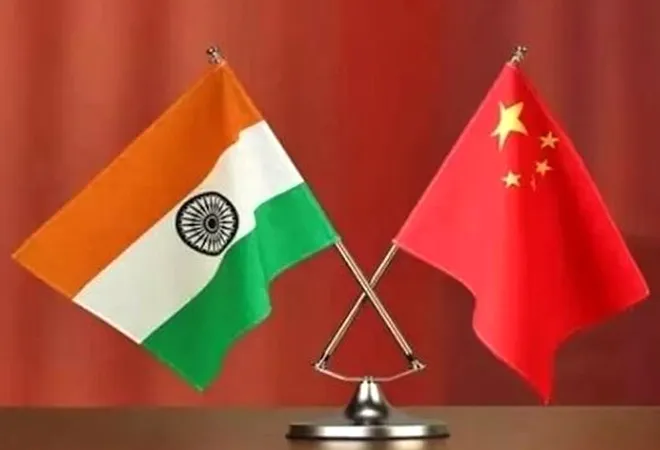-
CENTRES
Progammes & Centres
Location
From the SCO and BRICS to the United Nations, the ongoing rivalry between India and China has expanded beyond their borders, posing new challenges

It is important that India and China continue to work together on global and bilateral economic concerns, even as the border issue is dealt with by officials on both sides.In the past, there was a sense that India and China, despite serious bilateral divergences, had significant convergences at the global level that could be explored to build a partnership benefiting the two nations. However, today the divergences between India and China on global platforms are becoming equally evident. Recently, External Affairs Minister S Jaishankar told the Parliamentary Consultative Committee for External Affairs that China is the only country among five permanent members of United Nations Security Council (UNSC) that is opposing India’s entry into the powerful body. It was always clear that China won’t allow India into the UNSC, but for India to articulate it openly makes it evident that New Delhi has no faith in the UNSC reforming anytime soon. As a result, India is signaling that it will work with other platforms to pursue its global interests and contribute to the global order. The Sino-Indian contestation is also intensifying across various platforms. At last month’s virtual summit of the Shanghai Cooperation Organisation (SCO) that India hosted, Prime Minister Narendra Modi not only took on Pakistan directly but also the duplicitous attitude of nations like China, when he remarked, “Some countries use cross-border terrorism as an instrument of their policies and provide shelter to terrorists. SCO should not hesitate to criticise such nations. There should be no place for double standards on such serious matters.” With his comments, Mr Modi was making clear that sanctimonious statements from SCO on terrorism have no meaning if Pakistan is not made to feel the heat of regional states. He was underlining New Delhi's concerns about the effectiveness of the SCO on a matter as important as this.
While the five members expressed an interest in the expansion of the grouping last year, India is keen that the principles defining the process of expansion are articulated clearly.Mr Modi also addressed issues related to territorial sovereignty and connectivity, underlining that strong and better connectivity “not only enhances mutual trade but also fosters mutual trust”. He, however, cautioned that “in these efforts, it is essential to uphold the basic principles of the SCO charter, particularly respecting the sovereignty and regional integrity of the member states.” In line with its longstanding and consistent approach on China’s Belt and Road Initiative (BRI), India refused to sign the paragraph supporting BRI in the New Delhi declaration and stayed out of a joint statement on SCO Economic Development Strategy 2030. The future of BRICS (Brazil, Russia, India, China and South Africa) is also under stress as Chinese attempt to expand the platform is being resisted by India and Brazil. Beijing is focused on a quick expansion with the aim of giving the platform a distinctly anti-Western orientation, which New Delhi and Brasilia seem to have no interest in. While the five members expressed an interest in the expansion of the grouping last year, India is keen that the principles defining the process of expansion are articulated clearly. As the platform works through consensus, it will be difficult for China to push its agenda unilaterally. India’s presidency of the G20 has allowed New Delhi to set the agenda of the grouping and it has rightfully focused on the concerns of the Global South. But China-Russia combine on the one hand and the West on the other are likely to the most important fault-lines in defining the legacy of this G20. Beijing has no real interest in ensuring a successful G20 in India. From the SCO and BRICS to the United Nations and the Indo-Pacific, the Sino-Indian contestation is moving from the bilateral to the global arena. As a consequence, New Delhi will have to work more closely with like-minded nations in creating and sustaining new institutional frameworks that not only respond to today’s geostrategic realities but also serve Indian interests that are increasingly becoming more global.
The views expressed above belong to the author(s). ORF research and analyses now available on Telegram! Click here to access our curated content — blogs, longforms and interviews.

Professor Harsh V. Pant is Vice President – Studies and Foreign Policy at Observer Research Foundation, New Delhi. He is a Professor of International Relations ...
Read More +